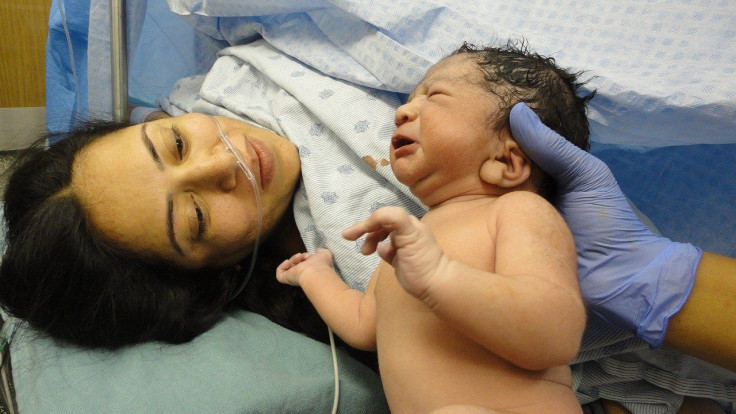This Is Why Some Women Do Not Request Epidural During Childbirth: Researchers
KEY POINTS
- While some women need epidural during labor, some others don't
- Researchers find a genetic variant which makes some women deal with pain better
- Only one in hundred women have this gene
Childbirth is a very painful experience, nevertheless, some women do not seek pain relief during labor. A new study pointed out that women who carry a particular gene do not need epidurals during childbirth.
The experts at the Cambridge University Hospitals NHS Foundation Trust and the University of Cambridge found that each woman’s experience of labor and birth is unique and the level of pain and discomfort during childbirth also varies substantially between women.
The researchers who sought to investigate why some mothers report lesser pain during labor found that a genetic variant was responsible.
The Study:
A group of women who carried their first-born to full term did not request any pain relief during an uncomplicated vaginal birth. The researchers carried out a number of tests on these women such as applying heat and pressure to their arms and even made them plunge their hands into the icy water. Another group of women who experienced similar births requested for pain relief.
While the researchers didn’t find any emotional or cognitive abilities in either group, they found higher pain thresholds for heat, cold and mechanical pressure among the first group of women who didn’t need pain relief during labor.
"It is unusual for women to not request gas and air, or epidural for pain relief during labor, particularly when delivering for the first time. When we tested these women, it was clear their pain threshold was generally much higher than it was for other women," MedicalXpress quoted the study’s lead author Dr. Michael Lee from the University's Division of Anaesthesia.
The Natural Epidural: Gene KCNG4
Upon sequencing the genetic code of both the groups of women, the researchers found that the first group of women who didn’t need pain relief during labor had a higher-than-expected prevalence of a rare variant of the gene KCNG4. About one in 100 women are likely to carry this genetic variant.
The gene KCNG4 codes for a protein that forms a ‘gate’ which controls electric signal flowing through nerve cells. The researchers explained that this gene reduced the sensitivity of this gatekeeper to electric signals. This might explain why women with the gene experience less pain during labor.
The researchers hope that their findings could pave the way towards the development of new drugs to manage pain.
"This approach of studying individuals who show unexpected extremes of pain experience also may find wider application in other contexts, helping us understand how we experience pain and develop new drugs to treat it," MedicalXpress quoted the study’s co-author Professor David Menon.

© Copyright IBTimes 2024. All rights reserved.





















